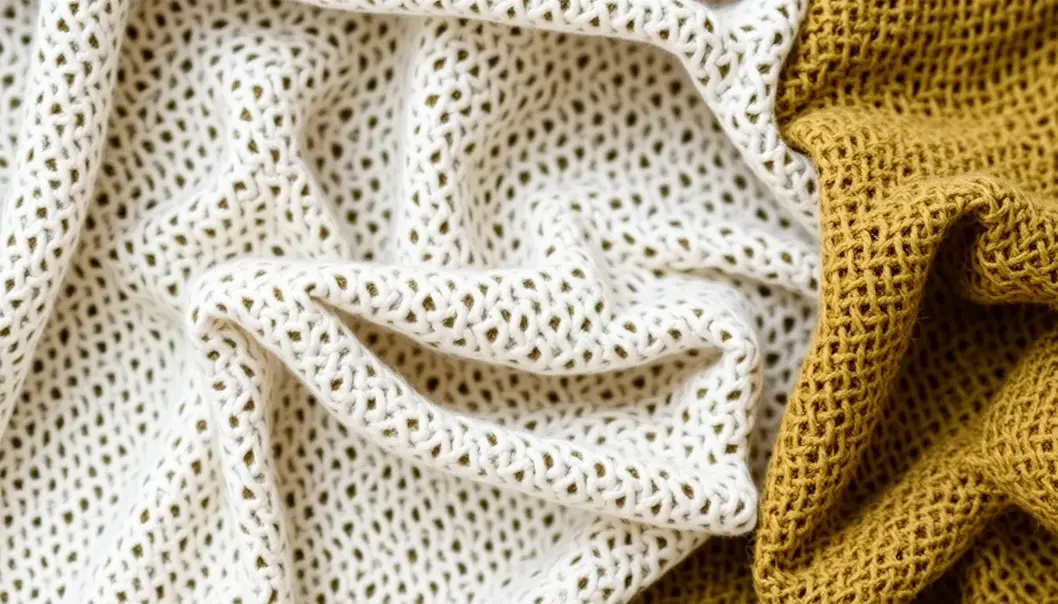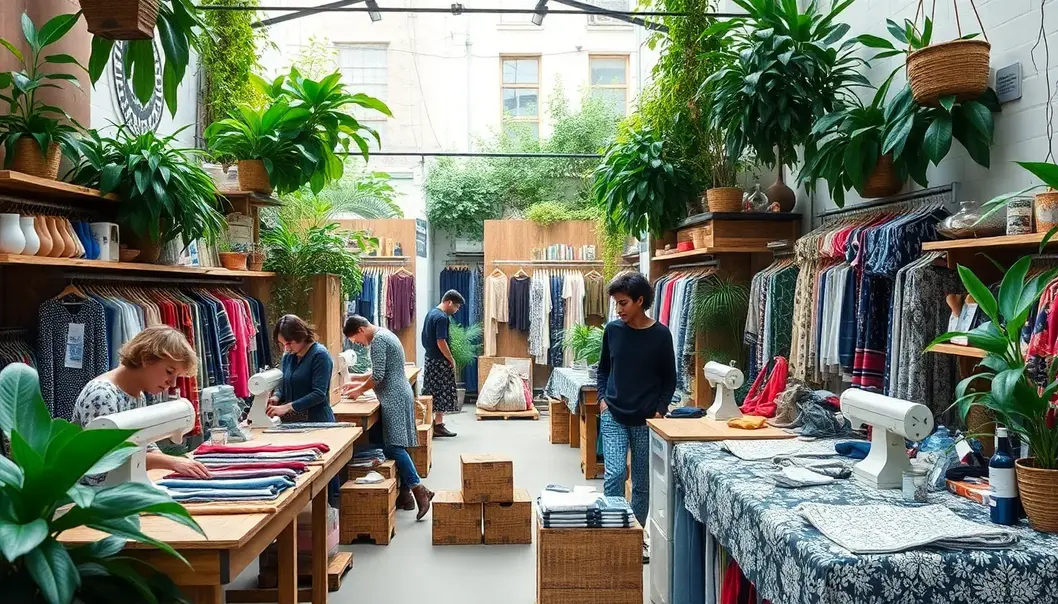Sustainable fashion is more than just a movement—it’s a commitment to protecting our planet for future generations. By choosing eco-friendly clothing, shoppers can reduce their environmental footprint and foster ethical practices within the fashion industry. This paradigm shift encourages a conscious approach to consumption, aligning style with sustainability. As the demand for responsible fashion grows, the industry is evolving to offer innovative solutions that diminish environmental degradation. In the following sections, we’ll explore critical aspects of sustainable fashion, identifying impactful brands and practices you can integrate into your wardrobe to make a meaningful change.
Eco-Friendly Fabrics: Beyond Organic Cotton

The quest for sustainable fashion often begins with a desire to make conscientious choices, with organic cotton frequently in the spotlight. However, as the garment industry evolves, a myriad of materials emerges that promise not only to rival, but perhaps redefine, eco-friendly textile standards.
Organic cotton is lauded for its minimal environmental impact, requiring fewer agricultural chemicals compared to its conventional counterpart. Yet, its cultivation still demands considerable water resources, which has spurred interest in exploring alternatives. Understanding the larger spectrum of sustainable fabrics can guide us toward more sustainable wardrobe decisions.
Tencel, also known as lyocell, is a fabric engineered from the cellulose of eucalyptus trees, boasting a closed-loop production process. This means that 99% of the chemicals used during its production are recycled, making it a paragon of eco-innovation. The fibers are biodegradable and compostable, combining sustainability with softness and breathability, which are essential for comfort.
Hemp, another ancient yet revolutionary fabric, champions sustainability in its cultivation. It thrives with minimal pesticide need, grows rapidly, and enriches the soil it inhabits, presenting a trifecta of environmental benefits. Hemp’s strength and natural resistance to mold make it ideal for lasting garments less prone to wear and tear, further reducing textile waste.
Recycled materials, including recycled polyester, emerge as frontrunners in minimizing the fashion industry’s carbon footprint. By diverting plastic waste, such as PET bottles, from landfills, they offer a second life to materials that would otherwise perpetuate pollution. These fabrics reduce reliance on virgin resources and represent a creative response to environmental challenges.
When shopping for sustainable garments, consider certifications that validate eco-friendly practices. Labels such as the Global Organic Textile Standard (GOTS) and OEKO-TEX help identify truly sustainable products. Pay attention to transparency from brands regarding their sourcing and manufacturing processes, as this openness often reflects genuine commitment to sustainable practices.
Venturing beyond organic cotton to explore fabrics like Tencel, hemp, and recycled materials not only diversifies our wardrobes but also significantly contributes to less water usage and reduced carbon emissions. Thus, each purchase becomes a step toward ecological mindfulness and a healthier planet.
Empowering Change: Discovering Ethical Brands

In the realm of sustainable fashion, discovering brands that genuinely prioritize eco-friendly practices is crucial. Ethical fashion brands stand apart by making conscious choices about sourcing materials, ensuring fair labor, and minimizing waste. These companies don’t just follow trends; they lead by example, impacting the planet and communities positively.
Ethical brands often start with their choice of materials. They use sustainable fabrics such as Tencel, hemp, and recycled fibers, thereby reducing their ecological footprints. Many brands carefully select suppliers committed to environmental stewardship, ensuring that raw materials are renewable, biodegradable, or recycled. This approach not only conserves natural resources but also mitigates environmental degradation.
Fair labor practices are another cornerstone of ethical brands. These companies recognize the intrinsic link between human welfare and sustainability. They work diligently to maintain transparent supply chains, providing safe working conditions and fair wages. Such practices empower workers worldwide, fostering community development and social equity.
Waste reduction is a crucial component of sustainable practices. Ethical brands implement strategies like zero-waste pattern making and recycling off-cuts to minimize landfill contributions. Furthermore, some employ closed-loop systems, creatively turning textile waste back into usable products. These innovations highlight their commitment to longevity and resource optimization.
Several brands have made remarkable strides in creating a sustainable future. Their stories are a testament to innovation and dedication. Companies that engage in regenerative farming, transparent supply chains, and proactive waste management practices stand out. By choosing such brands, consumers contribute to tangible environmental and social impacts.
To recognize truly sustainable brands and avoid greenwashing, consumers can look for certifications like Fair Trade, Global Organic Textile Standard (GOTS), and Bluesign. These certifications indicate high standards in materials, production, and social responsibility. Moreover, examining a brand’s transparency, such as detailed supply chain disclosures and sustainability reports, can provide insights into their authenticity.
Supporting ethical fashion extends beyond individual purchases. It signifies a collective effort to drive systemic change. As consumers become more informed and selective, they encourage more brands to adopt sustainable practices, leading to a broader, more profound impact on the fashion industry.
Final words
Sustainable fashion presents an opportunity for environmentally conscious shoppers to make a positive impact. Adopting eco-friendly fabrics and supporting ethical brands can significantly reduce our carbon footprint and promote an equitable future for all. By integrating mindful practices into our purchasing decisions, we contribute to a system that values people and the planet over profit.
Join the sustainable fashion movement and transform your wardrobe while protecting the planet.
Learn more: https://www.sustainablefashionhub.com/start-your-journey
About us
Sustainable Fashion Hub offers guidance and resources for integrating sustainable practices into your wardrobe. We connect you with brands that value ethical sourcing and environmental responsibility, offering stylish, eco-friendly clothing that aligns with your values. Discover the latest trends in sustainable fashion today.

